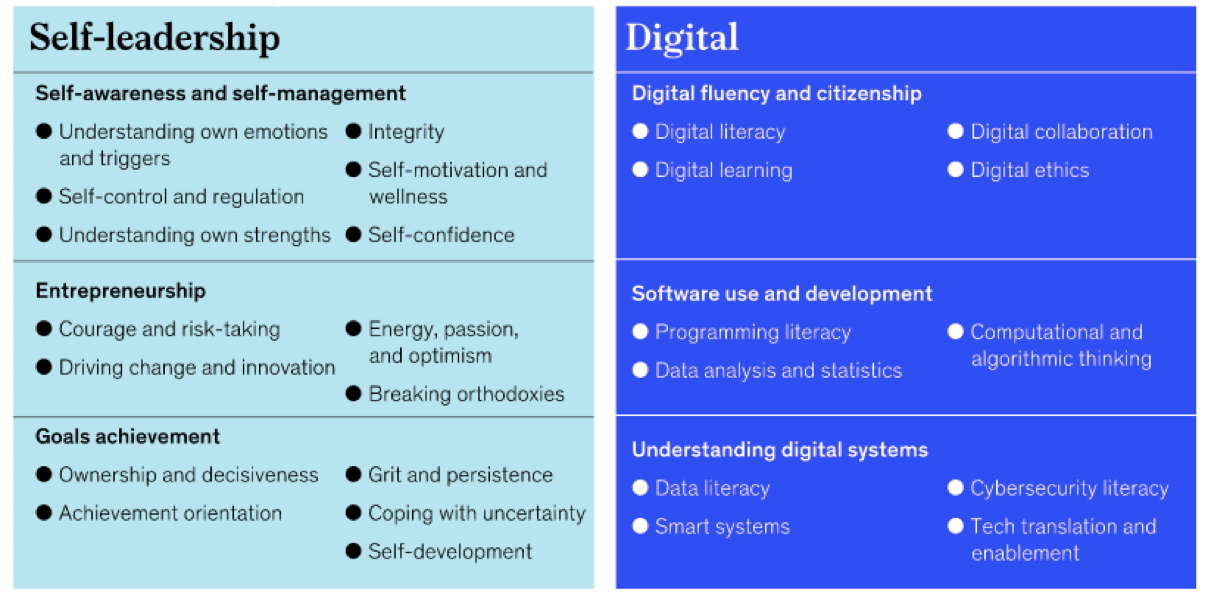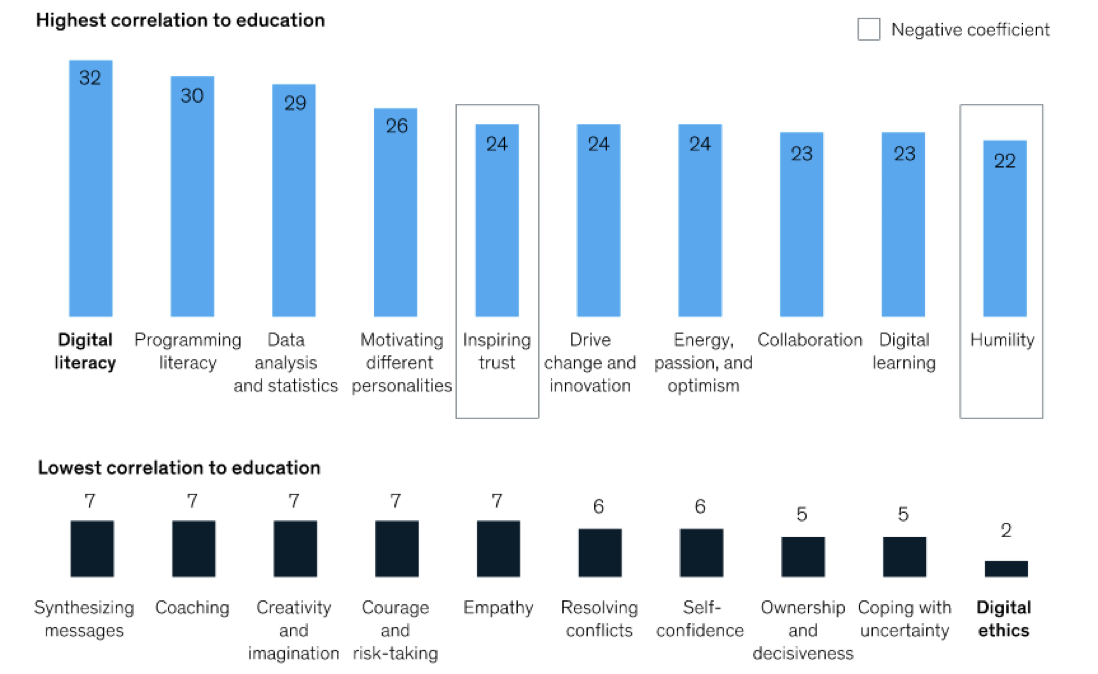


Recent headlines in the Jersey media from the report issued by the Jersey Employment Group highlight that 27% of all current jobs will be radically changed or become obsolete in the next 15 years.
This follows on from a PwC study published last year that predicts up to 16,900 existing jobs in Jersey being lost by 2035, predominantly in the financial services sector.
The dots have been there to connect for a while so these are not surprising findings. What do we need to do differently to prepare our children and current workforce to not only survive but thrive as these changes roll through?
The McKinsey Global Institute has previously looked at the kinds of jobs that will be lost and new ones that will be created as automation, artificial intelligence (AI), and robotics take hold.

Pictured: "Further research from a survey of 18,000 people in 15 countries has identified a set of 56 foundational skills and showed that higher proficiency in these skills is already associated with a higher likelihood of employment, higher incomes, and job satisfaction." (McKinsey Global Institute)
The research suggests that the need for manual and physical skills and basic cognitive ones will decline, but, demand for technological, social and emotional, and higher cognitive skills will grow.
Further research from a survey of 18,000 people in 15 countries has identified a set of 56 foundational skills and showed that higher proficiency in these skills is already associated with a higher likelihood of employment, higher incomes, and job satisfaction. So what are these skills?
The 56 skills are divided into 4 categories that include 13 key dimensions.
How would you rate yourself and the people in the organisations you work for or with on these 56 foundational skills? How would you rate people in government?
Many argue that having a workforce where most workers have university-level education is critical to navigate the changing landscape but the reality, not surprisingly, is more nuanced.

Pictured: "Many argue that having a workforce where most workers have university-level education is critical to navigate the changing landscape but the reality, not surprisingly, is more nuanced." (McKinsey Global Institute)
While many of the skills in the Cognitive and Digital categories are positively correlated to education, there are just as many foundational skills where education doesn't lead to higher proficiency – 'empathy' and 'digital ethics' are just a couple of the interesting ones that jump out. Indeed, 'inspiring trust' and 'humility' are negatively correlated to education.
Education and skills training are therefore both important for the future of work. These foundational skills are useful to guide strategies for education reform (from the earliest years for our children) and lifelong learning (to encourage the existing workforce to learn new skills).
Having appropriate technical knowledge, particularly in the Digital category with the increasing pace of technological change, is just one piece of the puzzle and is the easier set of skills to teach as they are rooted in generally agreed standards; for example, mathematical, coding and logic rules – think of the English language today that is based on a standard alphabet with 26 letters.
The real challenge lies in our ability to learn and become proficient at more of the non-technical and higher-level cognitive skills, sometimes called 'soft' skills – this area doesn't necessarily have generally agreed standards in a culturally, professionally and ethnically diverse population; for example, how do trust and empathy work across different cultures and contexts?
How can "courage and risk-taking" be strengthened in a highly regulated environment? Can we find and support the people that can communicate across different personalities, boundaries and technical silos to help build these skills?
There are no easy answers but recognising and investing in addressing questions like these and building these "soft" skills in our society – including children, workers, civil society, change agents and decision-makers, across all ages and communities – in a continuous and sustained fashion is critical to increase the odds of success in navigating the current disruptions and those to come.
Government has recently invested in supporting digital skills development with overwhelming enrollment and demand for fully funded courses – that is a good reflection of the appetite to learn in the workforce.
Investment in the Cognitive, Self-Leadership and Interpersonal categories is urgently needed now for comprehensive skills development of the current workforce.
Significant government investment and sustained focus on radical education reform is also critical to teach and develop the 56 foundational skills in our children from their earliest years to secure our collective future success.
Comments
Comments on this story express the views of the commentator only, not Bailiwick Publishing. We are unable to guarantee the accuracy of any of those comments.